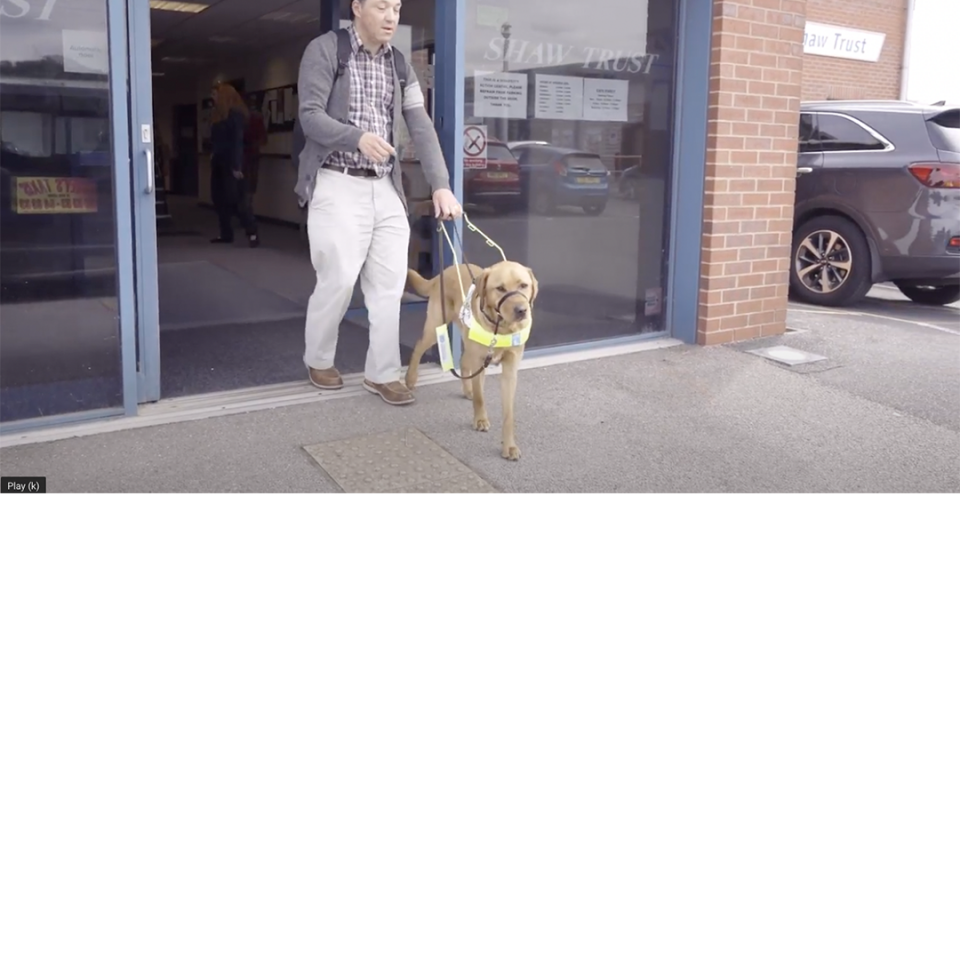Over time, there has been a lot of discussion on whether to declare your disability on a job application or not. This is due to some people saying that they are still discriminated against because of their disability. Personally, I think that this is getting better due to the Disability Confident Scheme, however, people are still keeping their disability to themselves until the time of an interview.
This got me thinking about different scenarios that I have faced as a blind person:
Scenario 1: Discrimination When Ordering a Taxi, Due to Disclosing That I Have a Service Dog
Firstly, let’s look at a scenario of ordering a taxi in the role of myself, as a blind person, with a guide dog.
What I normally do:
- I ring the taxi firm and tell them where I want to travel to.
- I also tell them that I am blind and have a guide dog.
This is what I would say is polite, but on the other hand, can become discriminative.
We all know that a taxi can’t refuse to transport a person and their guide dog, unless they have a certificate stating that they are allergic to dogs. However, if you are ringing up for a taxi, there is nothing stopping the driver from saying no to the firm’s controller. As I’m not aware of this, they could get away with being discriminative – resulting in me having to wait longer for a taxi. My guess is, this could be the same for a wheelchair user and, most probably, any other disability where the driver chooses if they want to accept the job or not.
On the other hand, by not telling the taxi company, the presumption is that the taxi could arrive and then not stop when they see any obvious disability. The result for myself, would leave me wondering whether the taxi has turned up or turned away. For a wheelchair user, as some wheelchair users can put their chair in the boot and sit in the taxi, they would see the taxi turn up and then see the taxi keep on going into the distance.
However, if I approached a taxi on the rank then they couldn’t refuse to take me, unless they have a certificate proving they would be allergic to my guide dog. So, in this case, should you disclose your disability or not?
Scenario 2: Whether to Disclose I Have a Guide Dog When Booking a Hotel Room
My brother is getting married and there are a few rooms left within the wedding venue. When he mentioned to me to have one of the rooms, the owner said that I would have to pay extra to be able to bring my guide dog. The equality bill states that this is discriminative.
The dilemma is: Do I kick up a fuss or leave it, as it is my brother’s wedding? Well, I now have a doggy sitter for that weekend to save any confrontation.
What would’ve happened if I just turned up on the day with my guide dog – as I do have the right to do that?
The same thing happened once when my wife went to book a hotel for her birthday. After going through the booking process on the phone for a sea view room, she said about my guide dog. At this point, instead of asking for a deposit, they said that we would have to downgrade the room because of the dog. I was not happy about it, but I suppose it was better than turning up and then being turned away again. If you were the sort of person that could stand your ground without upsetting anyone and get your point across, getting the room that they don’t want you to have, then turning up without disclosing your disability would work in your favour. However, at the end of the day it’s a risk as you may not have secured a bed for the night and wouldn’t be able to resolve the matter until getting in contact with the Guide Dogs for the Bind Association, or another authority.
I have had to have these discussions at a front of a queue to a restaurant, leading to the person having to go and ask the manager whether I am allowed in with my guide dog. This has happened a few times, with me still being able to go in, but it is embarrassing.
The Dilemma if to Disclose a Disability
I would love to have the confidence to just call a taxi or book a room, without saying anything about my disability.
Most people with a disability know when it is prudent to tell someone about their disability, when it will help everyone involved. Yet, still in today’s society the dilemma is still: ‘should I disclose or not disclose my disability?’
I don’t have the answer. Going off the above scenarios, what would you do?







